News & Updates
NICHD issues Releases and Media Advisories to the news media. Science Updates and Spotlights explain NICHD research findings and public health issues to the general public. An Item of Interest is a short announcement such as an initiative launch or a notable staff change. Director’s Corner posts are monthly updates from the NICHD director.
Director’s Corner: Endometriosis Research to Develop Non-Invasive Treatment and Diagnosis
Science Update: Mouse study links exercise during pregnancy to lower risk of obesity in offspring
Science Update: Earlier birth may increase the risk for developmental delays, NIH study suggests
Science Update: Youth with chronic pain more likely to have lower educational, career achievement, suggests NICHD-funded study
Science Update: Frequent driving practice linked to lower crash risk among teen drivers, NIH study finds
Release: NIH-funded research leads to pediatric labeling updates for doxycycline, clindamycin and caffeine citrate
Item of Interest: James A. Griffin, Ph.D., named new Chief of NICHD’s Child Development and Behavior Branch
Media Advisory: NIH researchers discover gene for rare disease of excess bone tissue growth
Media Advisory: Gene mutation enhances cognitive flexibility in mice, NIH study suggests
Media Advisory: Researchers develop language test for people with Fragile X syndrome
Women in Science: Diana Bianchi and the Value of Connections
Media Advisory: NIH researchers successfully stop blood vessel, tumor growth in mice
Director’s Corner: Advancing Women’s Health: Research to Reduce Maternal Mortality and Morbidity
Science Update: NIH study suggests children of mothers with PCOS may be at higher risk for anxiety, ADHD
Science Update: Fetal weight gain may begin long before gestational diabetes is commonly diagnosed
The excess body fat seen in infants born to women with gestational, or pregnancy-related, diabetes is associated with higher maternal blood sugar levels as early as the 10th week of pregnancy—long before the time when women are usually screened for the condition, according to a study by researchers at the National Institutes of Health. Moreover, weight gain in the fetuses of women with gestational diabetes first becomes apparent in the 28th week of pregnancy, when many women are first tested for the condition.

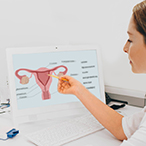






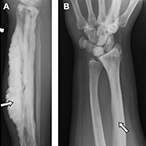



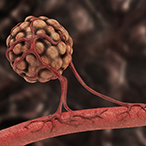
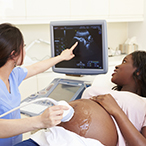

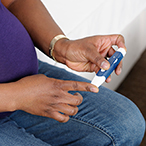

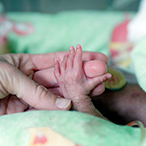


 BACK TO TOP
BACK TO TOP